Climate: NFU Cymru leaders boycott tree planting scheme
- Published
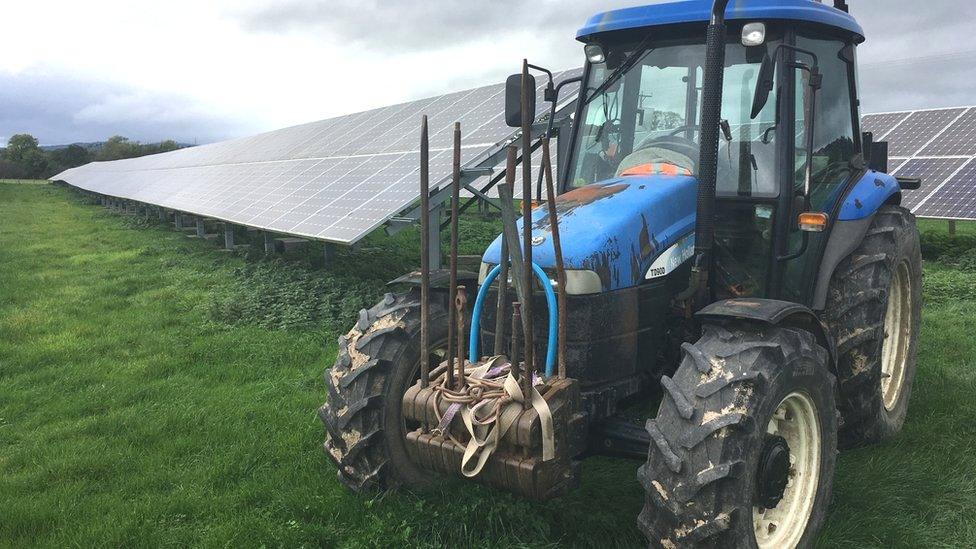
Farmers have been given stipulations to make their businesses greener - but said some do not "make sense"
Plans for a major overhaul of farm subsidy payments in Wales have been thrown into crisis after union leaders announced they would not take part in the scheme over tree planting rules.
NFU Cymru said the proposals were too complicated and "did not make business sense".
The plans were one of the Welsh government's flagship policies to fight climate change and nature loss.
Rural Affairs Minister Lesley Griffiths called it "really disappointing".
The news comes on the eve of the Royal Welsh Agricultural Show in Llanelwedd, Powys.
The Sustainable Farming Scheme, external is set to take effect in 2025, replacing EU-era payments that had been worth over £300m a year to Welsh farms.
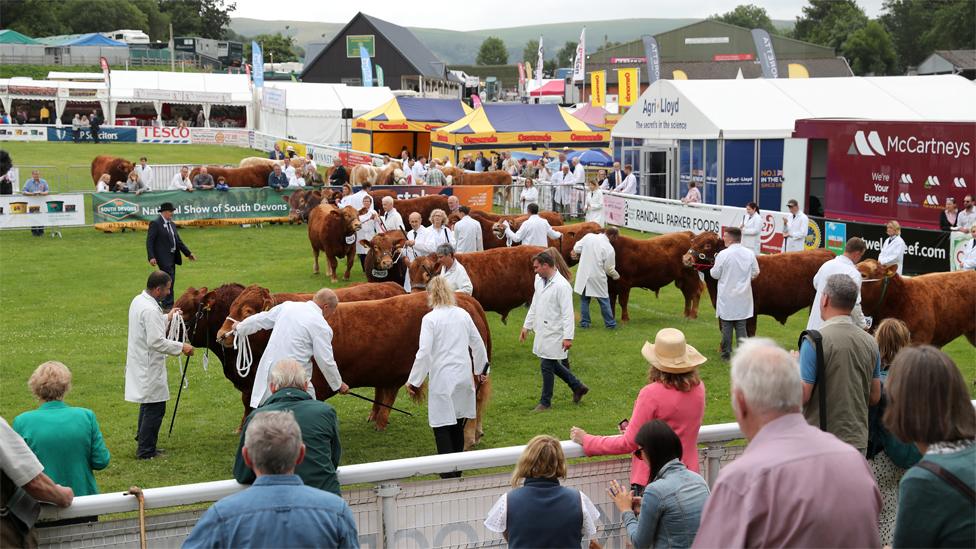
The announcement was made on the eve of the Royal Welsh Show in Llanelwedd
The new model is based on the idea of public money for public goods, rewarding farmers for actions that help soak in carbon emissions, provide habitats for wildlife and enhance water quality among other things.
To qualify, farms will have to sign up to a checklist of universal actions - including ensuring 10% of their land is planted with trees, and a further 10% managed as wildlife habitat.
NFU Cymru deputy president Abi Reader told BBC News that while farms were committed to environmental protection, the tree-planting target in particular was a barrier to many.
"We fear that payment rates are not likely to reflect the reduction in land values associated with tree planting - in effect a permanent land use change," she said.
"Would Welsh government expect any other sector to undertake an activity that could devalue an asset, in our case productive agricultural land, by up to 80% of its value?"
Along with the union's president Aled Jones, she has announced that, as it stands, she would not take part in the subsidy scheme.
"We've spoken extensively with our members, even farmers who rely hugely on farm support payments are saying we just can't make this add up and that's really concerning," she said.
"If farmers around Wales can't access this scheme then it's failed."
NFU Cymru represents thousands of farming business across Wales.
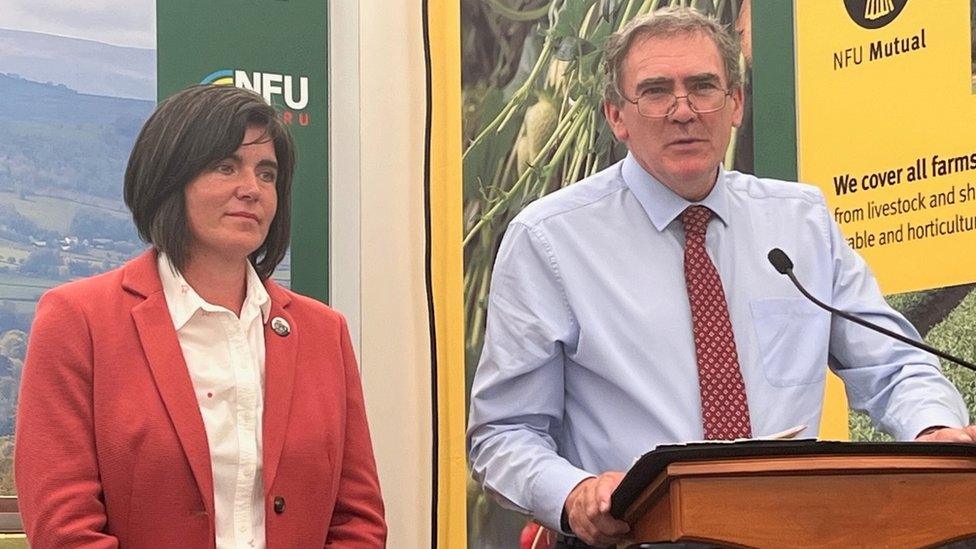
Abi Reader and Aled Jones of NFU Cymru say they cannot take part in the scheme as it stands
Its president Aled Jones said farmers were prepared to integrate more trees into farming systems - from "shelterbelts, streamside corridors to field corners".
"But we will not take our productive land out of food production for tree-planting," he said.
Ahead of the start of the Royal Welsh Show, Rural Affairs Minister Lesley Griffiths had called for farmers to visit the Welsh government's pavilion at the showground to find out more about the scheme.
"By working together we have a once in a lifetime opportunity to design a scheme which is right for our farmers and for Wales," she said.
"I want to keep farmers on the land, producing food sustainably, while dealing with the climate and nature emergencies."
Welsh Conservative Shadow Minister for Rural Affairs, Samuel Kurtz, said the views of farming unions had been ignored.
He said: "The Welsh government must now give serious consideration to major concessions or even scrapping this arbitrary percentage target altogether."
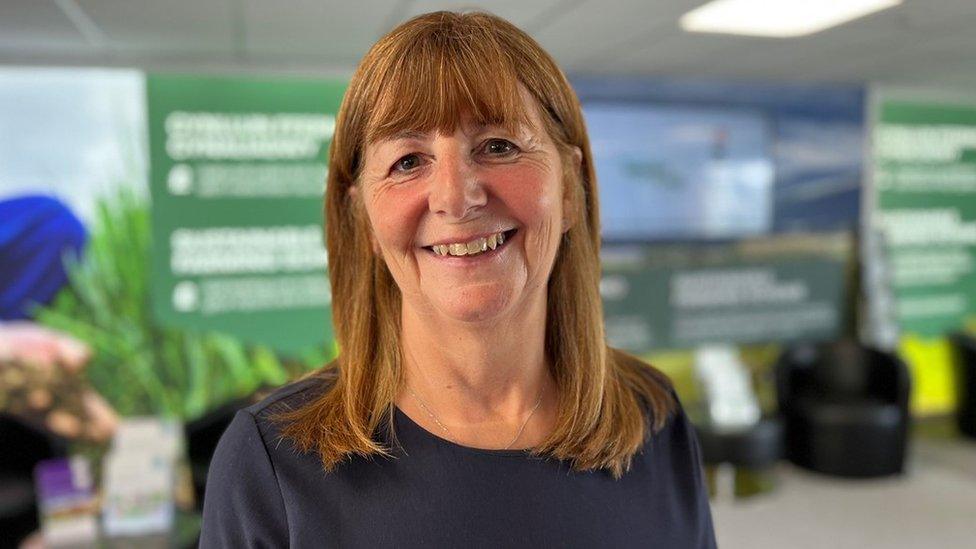
Lesley Griffiths said a reality check is needed
A third consultation on the proposals is set to be launched before the end of the year, with the final scheme unveiled in 2024.
Government advisors at the Climate Change Committee recently warned tree-planting rates in Wales were "far too low".
The Welsh government has set a target for 86 million more by 2030.
Forestry organisations have also called for an increase in homegrown timber production to reduce emissions from construction and said this would bring jobs to rural Wales.
Ms Griffiths said she believed other farmers would "take the lead" of Ms Reader and Ms Jones but added she has "met several farmers who don't think 10% goes even far enough so there are mixed views, but I think it is disappointing ahead of a final consultation".
She added: "The budget is very, very different nowadays. We're in a completely new world.
"We've left the European Union, we've left that security of the basic payments scheme, where that lump sum landed in the Welsh government budget and went straight out to farmers every year with no questions asked.
"We're not in that position any more."
Related topics
- Published6 July 2022
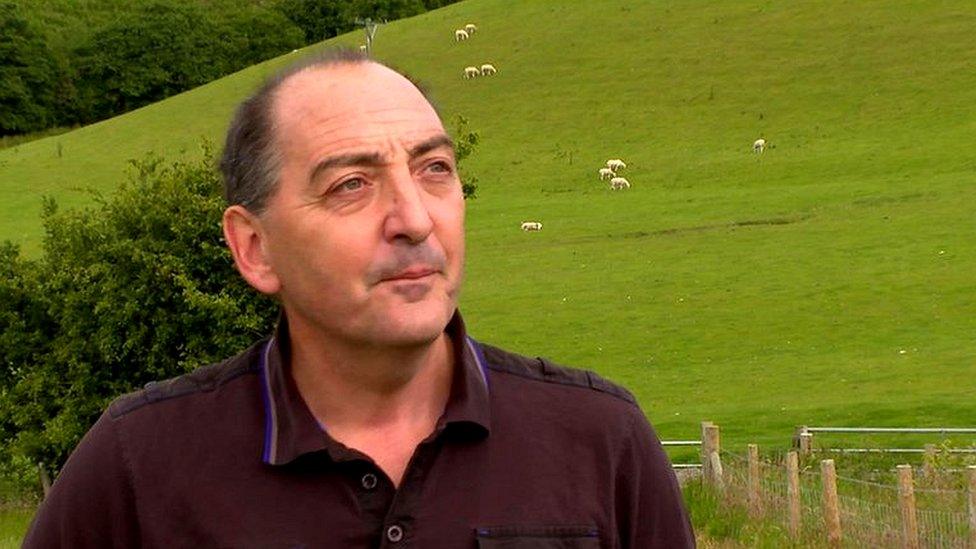
- Published26 September 2022
